
Saudi Arabia in ‘crisis’ over Khashoggi murder, says minister, as West avoids investment event
- ‘These are difficult days,’ admitted Energy Minister Khalid al-Falih at opening session of the Future Investment Initiative summit in Riyadh
- Some high-profile foreign firms and officials decided not to go at the last minute, but not so for companies from China and Russia
Saudi Arabia is in “crisis” in the face of international outrage over the murder of journalist Jamal Khashoggi, Energy Minister Khalid al-Falih admitted on Tuesday at an investment summit boycotted by a host of global CEOs and policymakers.
The three-day Future Investment Initiative (FII) was meant to project the authoritarian petro-state as a lucrative business destination and set the stage for multibillion-dollar contracts.
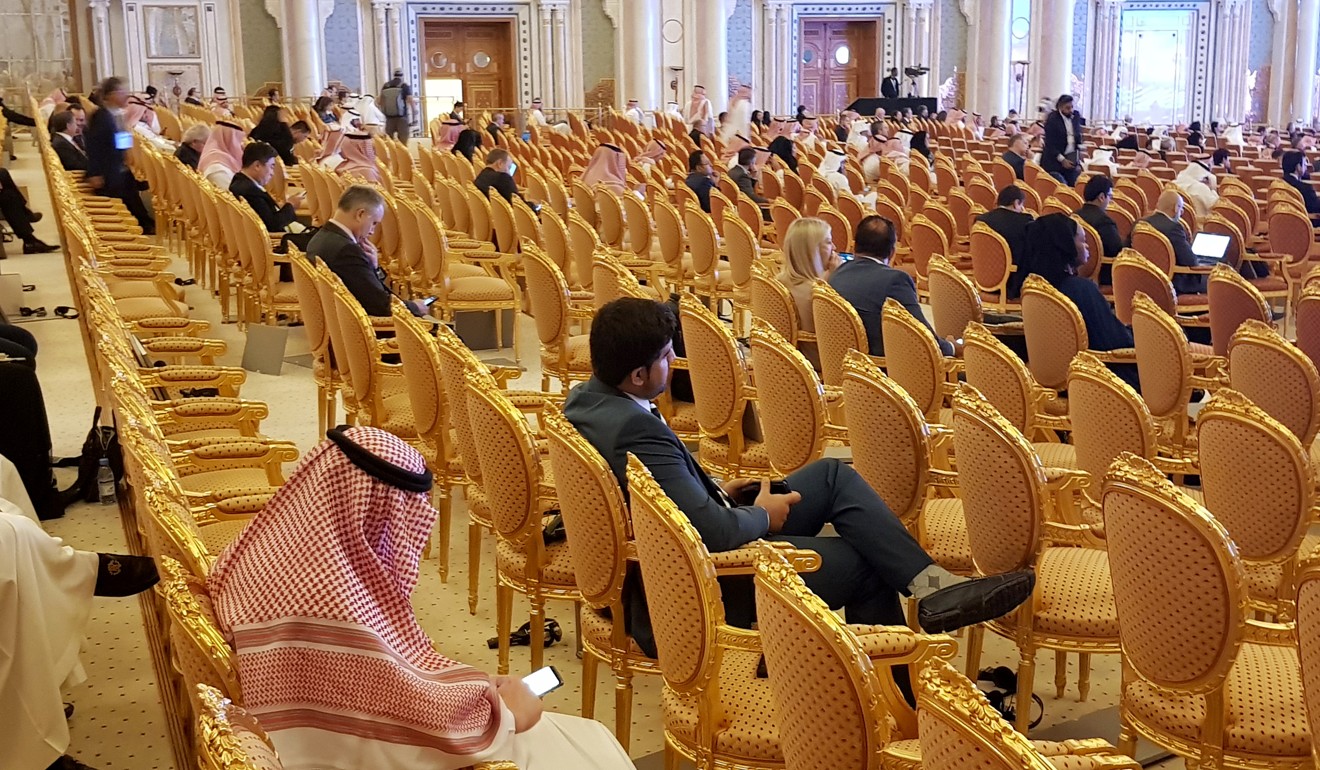
But the summit, nicknamed “Davos in the desert”, has been overshadowed by the outcry over the murder of Khashoggi inside the kingdom’s consulate in Istanbul, prompting some high-profile foreign investors to pull out.
Saudi Crown Prince Mohammed bin Salman, whose credentials have been heavily damaged by the scandal despite denying he was involved in the killing, did not go to the opening session.
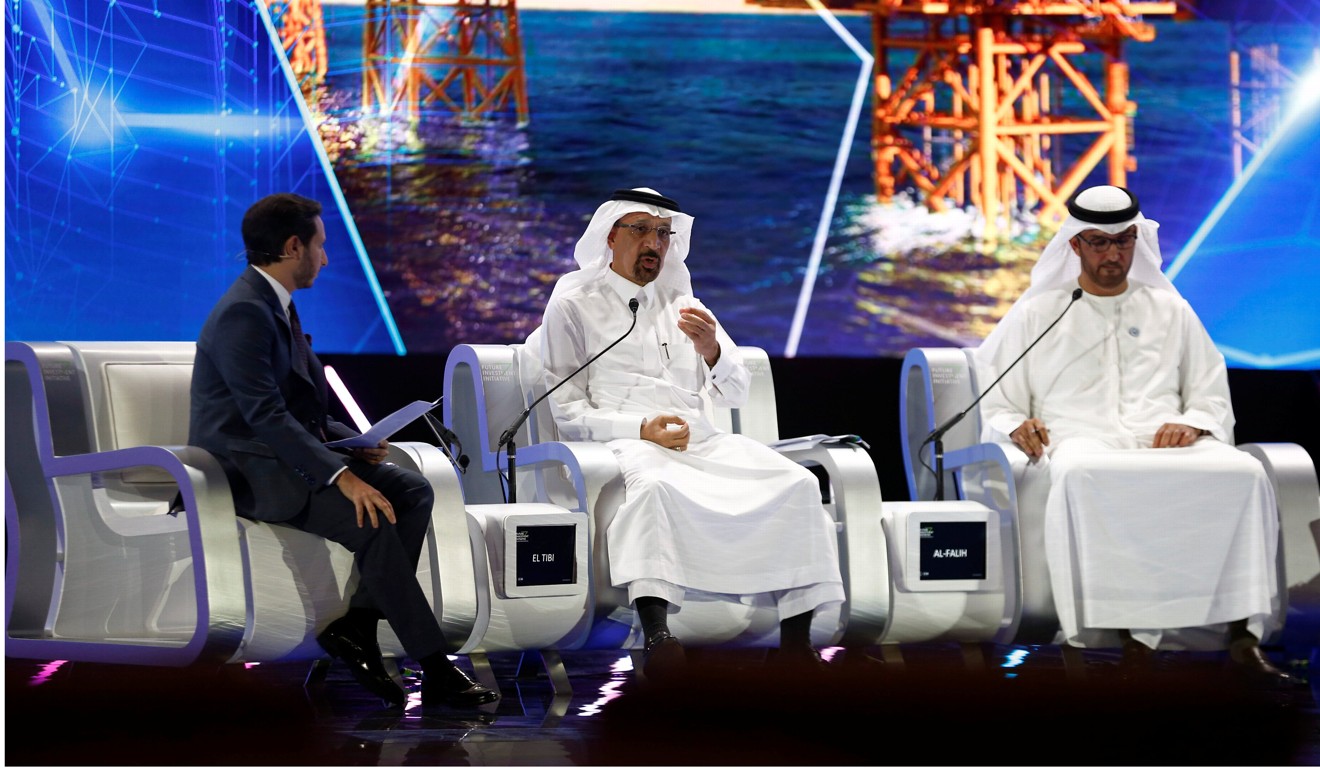
“As we know these are difficult days. We are going through a crisis,” Falih acknowledged in his speech.
He said the murder of Khashoggi was regrettable and “nobody in the kingdom can justify it”.
The Riyadh conference opened amid tight security at the Ritz-Carlton hotel, with Russian Direct Investment Fund chief Kirill Dmitriyev and Pakistani Prime Minister Imran Khan headlining.
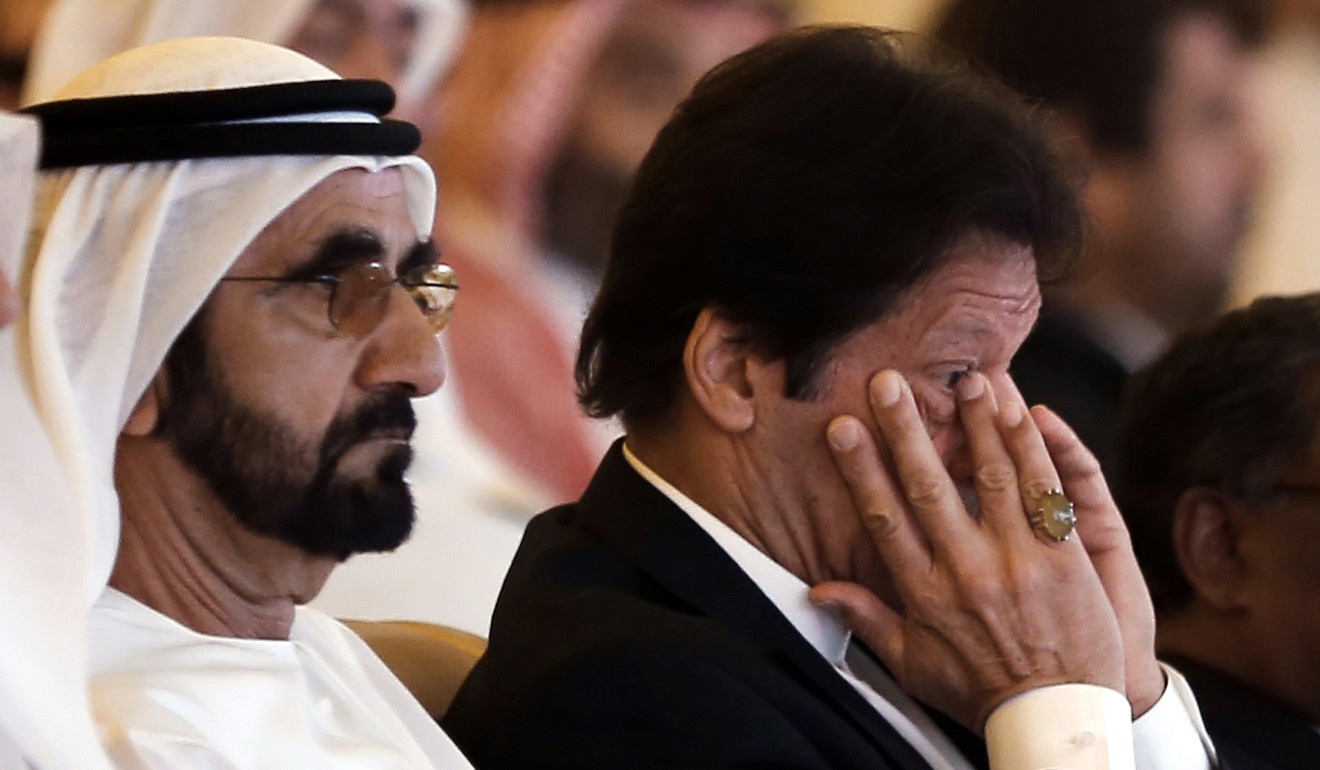
Falih praised the CEO of French energy giant Total, Patrick Pouyanne, for standing by Saudi Arabia in this difficult period.
“We see what partnership means when you have difficult times,” Pouyanne responded. “This is when you really strengthen a partnership.”
But a long list of foreign investors and policymakers decided not to show up in an apparent protest against the Khashoggi killing.
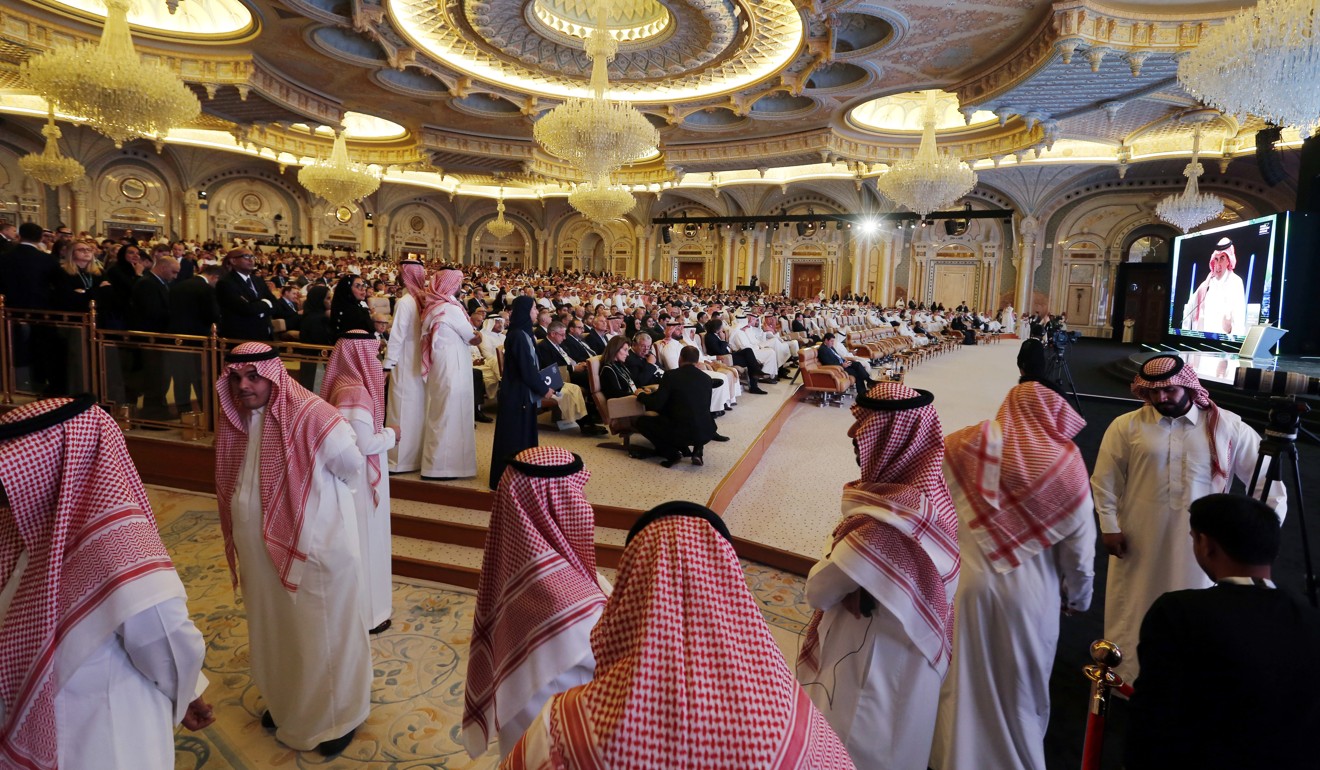
Corporate chiefs from Siemens, JP Morgan, Ford and Uber and media firms like Bloomberg, CNN and the Financial Times all scrapped plans to attend.
Ministers from Britain and France and the United States, which have huge defence deals at stake with Saudi Arabia, have stayed away.
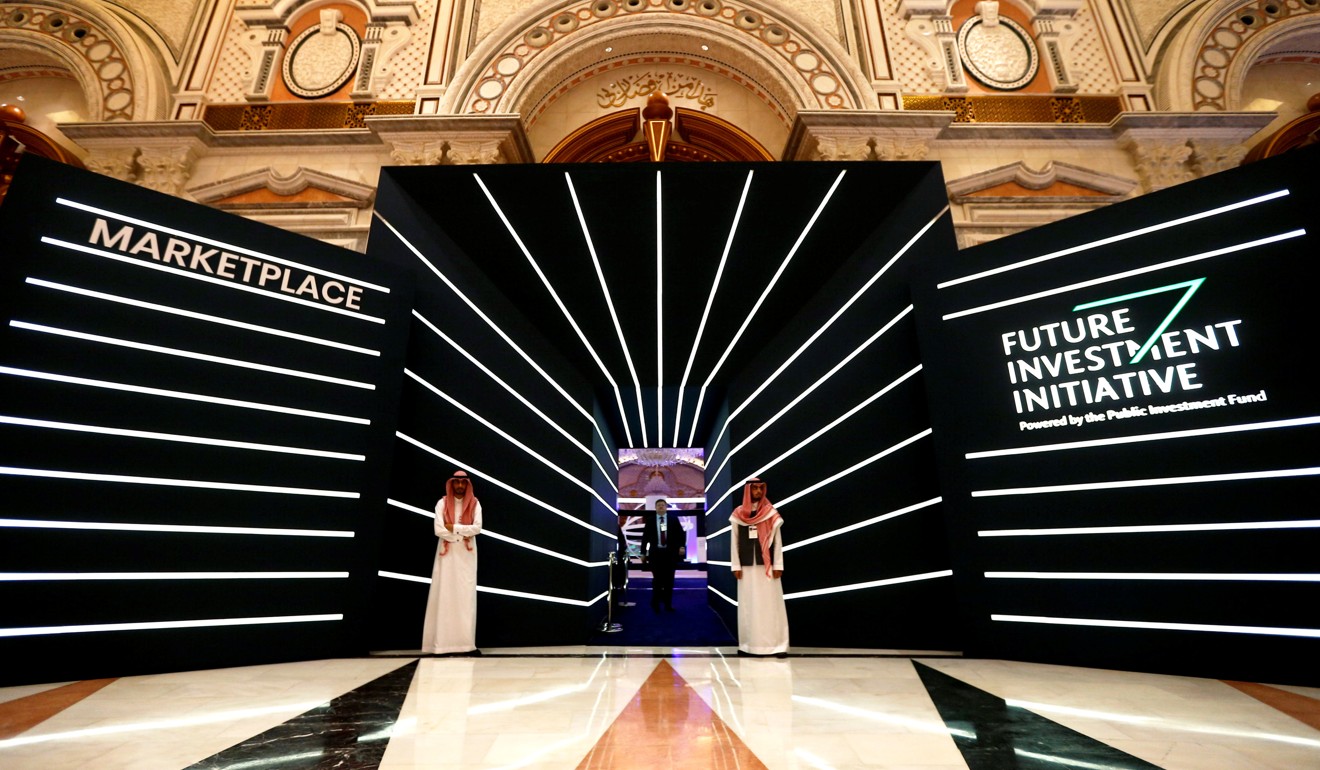
A wider Western boycott of the conference suggests rising political risks in Saudi Arabia that could hit foreign direct investment, which already plunged to a 14-year low last year, according to the UN.
And in a fresh setback, the forum’s website went down on Monday after an apparent cyberattack. There was no immediate claim of responsibility.
It was back up with reduced content when the conference opened.
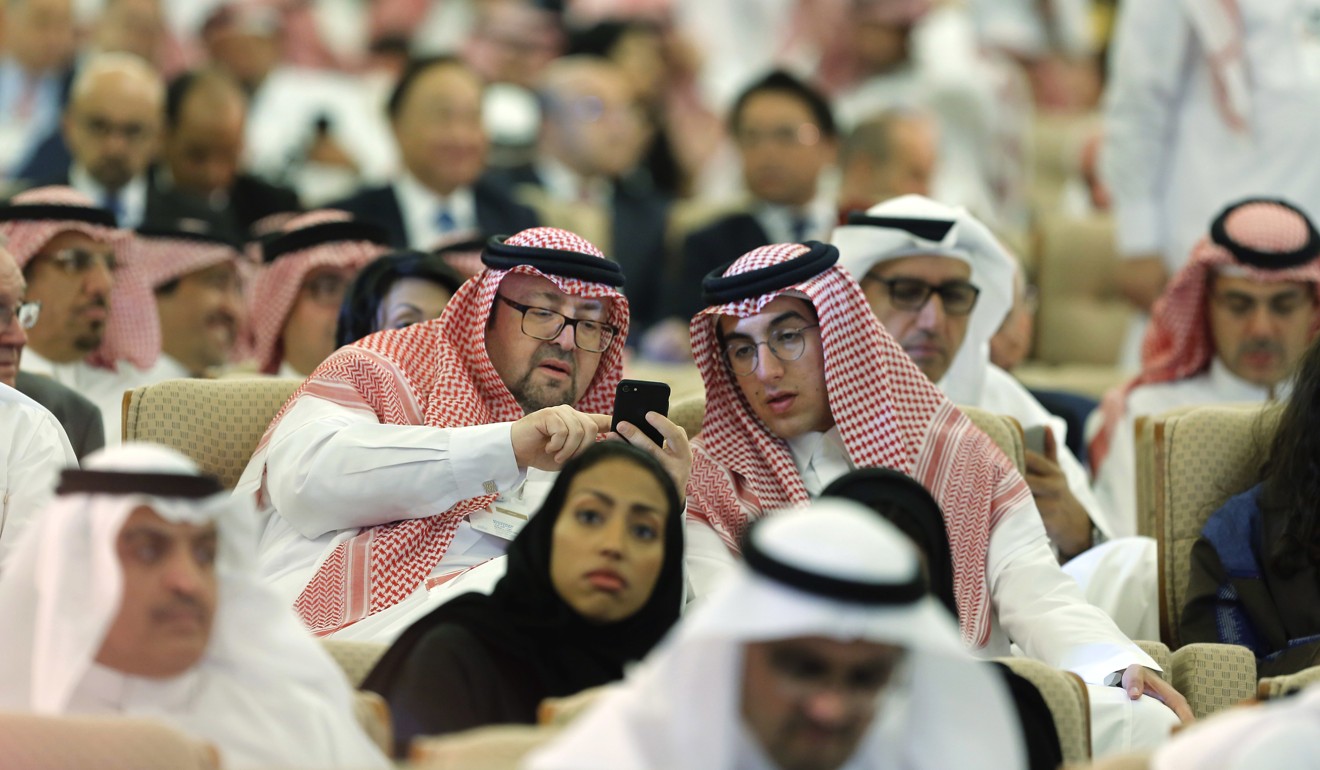
The conference contrasts with last year – a star-studded event at Riyadh’s Ritz-Carlton hotel, where Prince Mohammed was lionised as a visionary by some.
Many Western firms have too much at stake to abandon the Arab world’s biggest economy, but sent lower-level executives.
Companies from China and Russia are also not staying away.
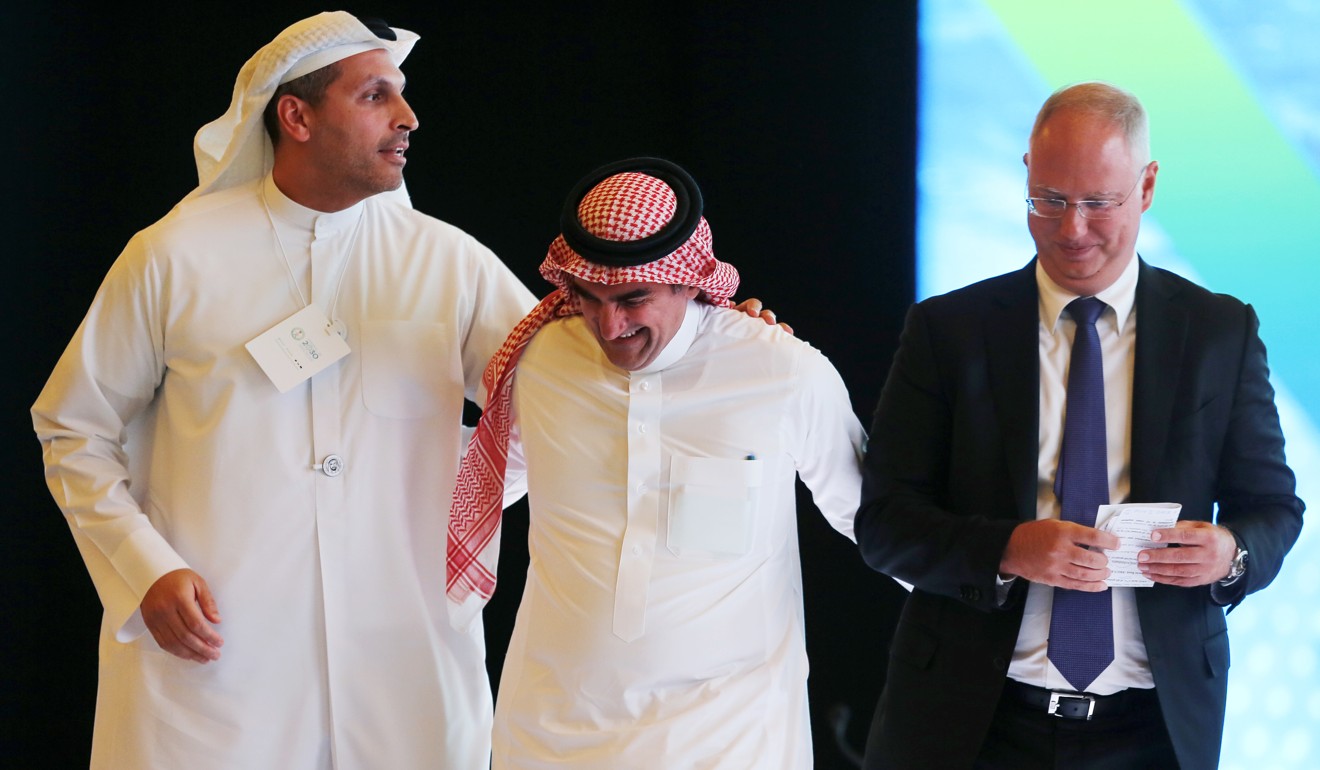
“The high profile withdrawal of so many American CEOs … certainly presents opportunities for Asian and Russian companies to make a splash,” said Ellen Wald, author of the book Saudi Inc.
The crown prince faces what risk consultancy Eurasia Group has called “an acute public relations crisis” over Khashoggi’s killing, which Saudi Arabia admitted was killed in the consulate after two weeks of denials.
Khashoggi’s killing fits the pattern of a recent crackdown on dissent in the kingdom, in which clerics, business high-fliers and women activists have been detained.
Further stoking investor anxiety, the kingdom is embroiled in an expensive and bloody war in Yemen and is leading an embargo against neighbouring Qatar.

.png?itok=arIb17P0)